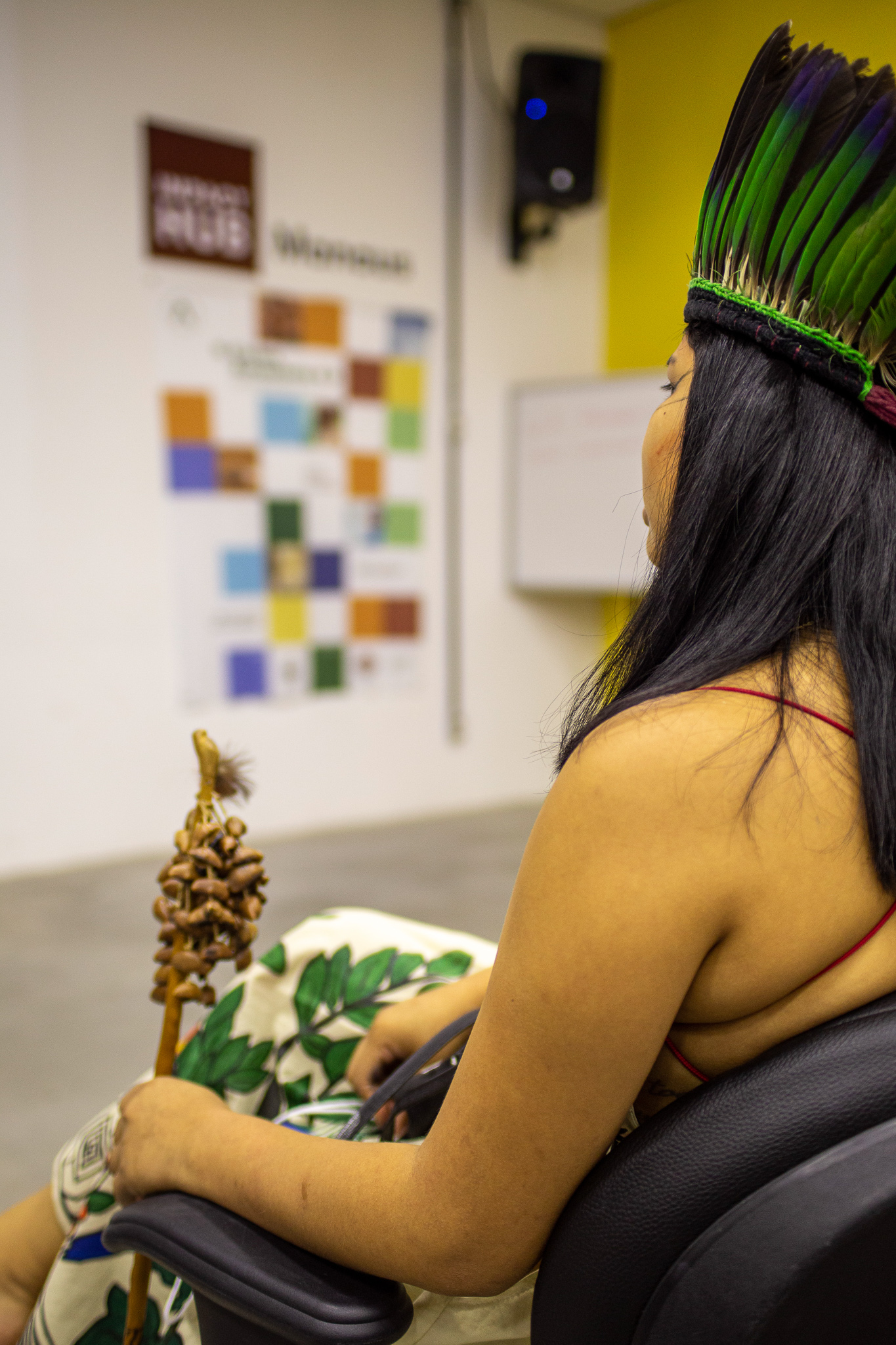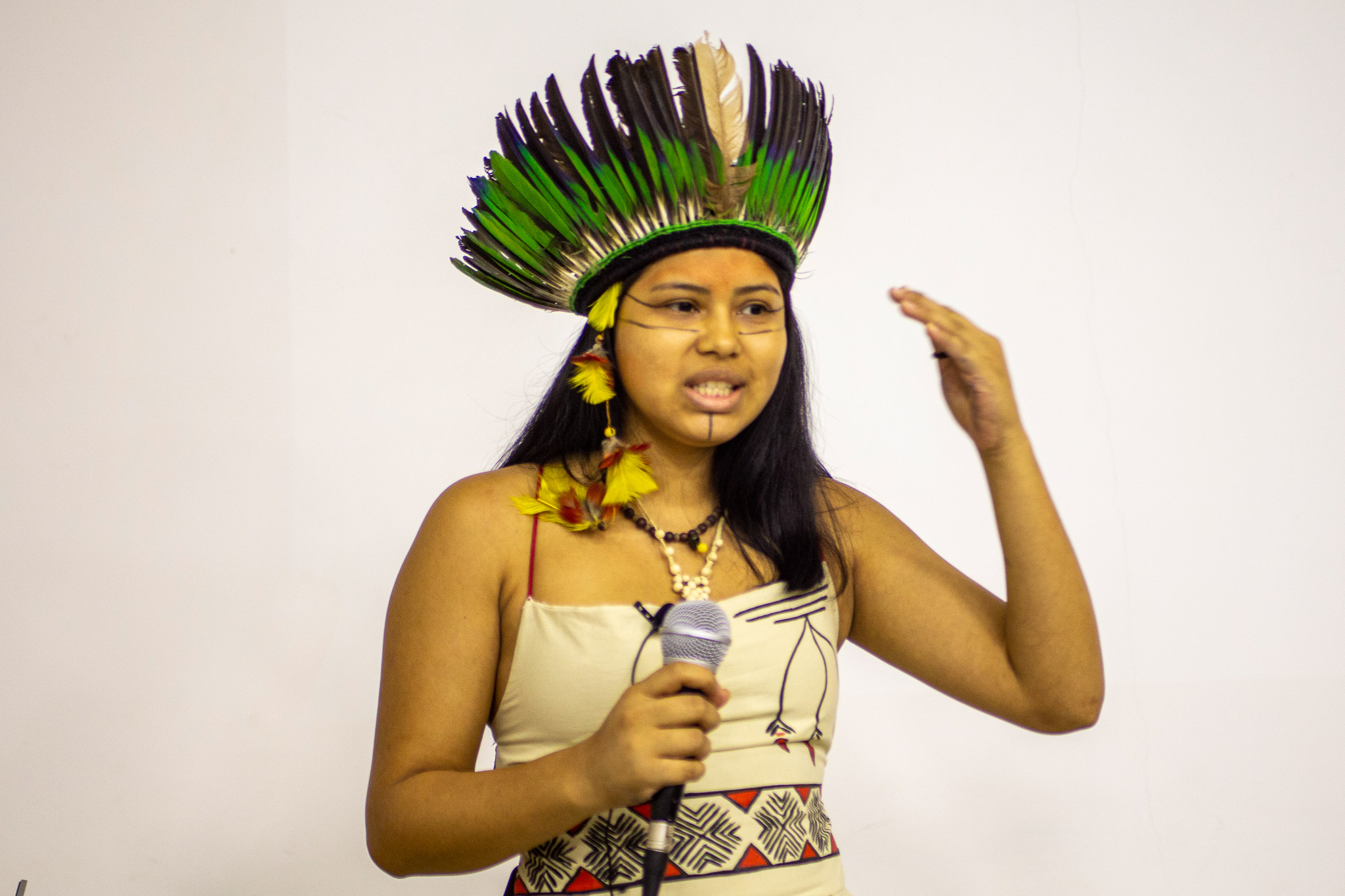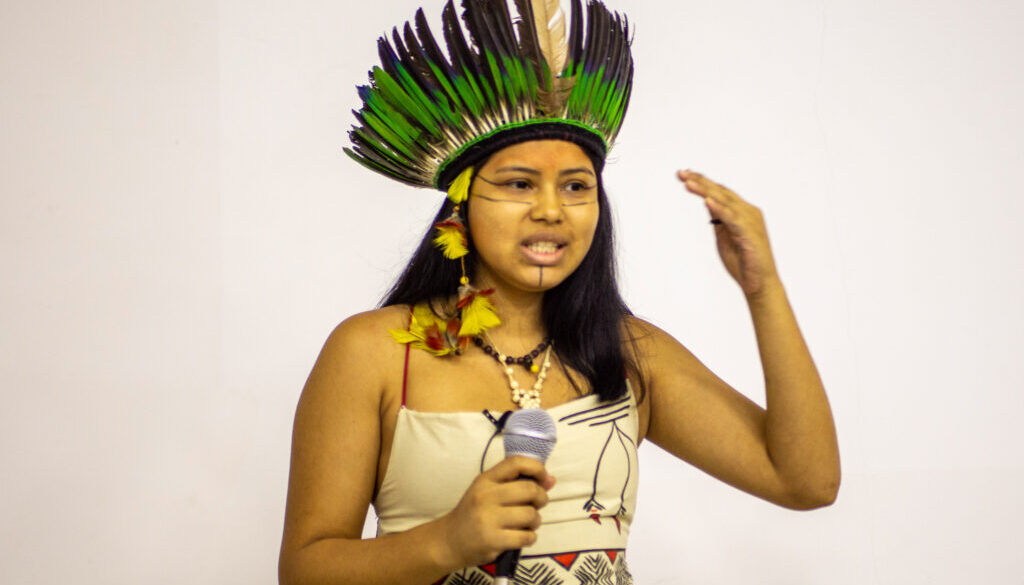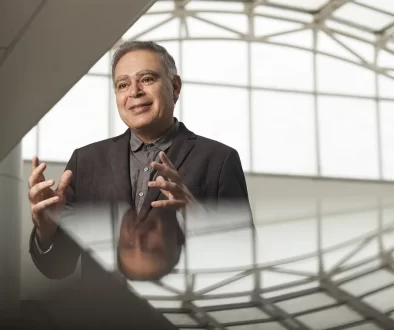Reconnecting Indigenous Youth with Their Elders Is Fundamental to Cultural Appreciation
“How a beautiful costume,” was how Jaqueline Kokama was greeted by the app driver who took her to Impact Hub Manaus to give her speech at Ciclos Amazônia 4.0 – Year II. She was dressed in traditional garments from her indigenous ethnic group.
The sadness that took over her expression turned into fuel for her speech at the event. “People don’t know their own culture in the country, in Amazonas. “It’s embarrassing that people do not know their own country’s culture, the culture of Amazonas. Our culture should be strong and beautiful. We cannot think this is normal,” reflected the 20-year-old indigenous student pursuing a degree in Psychology.

Jaqueline Kokama is a psychology student and indigenous activist
“When we talk about appreciation, we’re not just talking about handicrafts or rituals, it’s more than that; we are talking about the being of the indigenous person. The person who sees beyond the physical”. Jaqueline is concerned about the perpetuation of culture among young indigenous people.
“The knowledge we have must be passed on to our young people! Our graphics, headdresses, feathers. We’re not just talking about the forest, we’re talking about a whole body of knowledge, and our children are being disconnected from our culture,” she says.
Despite her young age, Kokama is a woman with a wealth of knowledge. She argues that the rescue of young indigenous people in order to enhance their culture requires them to be closer to the elders of the territory. “The devaluation of our culture is getting stronger. We need to pay more attention to what our elders do, the teaching of handicrafts, because we learn about seeds and medicinal plants. Our youth are losing sight of the past,” she laments.

Jaqueline Kokama in her speech on rescuing the relationship between young indigenous people and their culture
“We need to show non-indigenous people more and more how to respect our history, we’ve been on this land for over 1,500 years and we’re fighting against cultural devaluation,” she concludes.





